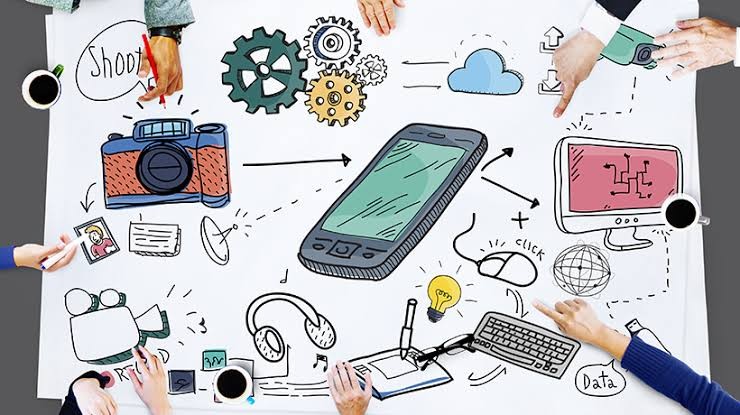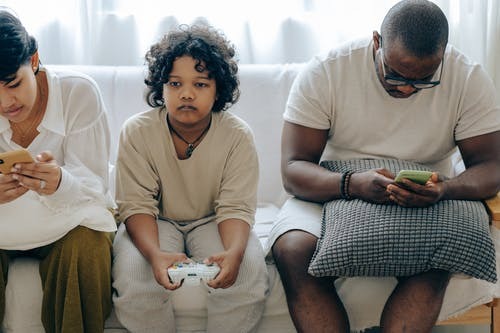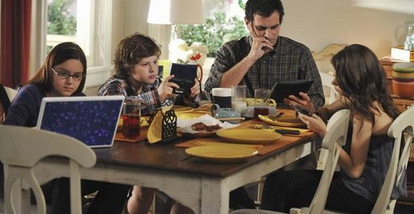By Nhlanhla Dlamini
MBABANE – I vividly remember the year 1988. As a young one, I was watching one of my favourite shows on television and it was called ‘Beyond 2000’.
This show showcased how technology would have evolved beyond the year 2000. I was watching it from a small Telefunken television that my grandmother had bought and fortunately for me, we were one of the first to own a color television during that era.
I remember that my grandmother, an avid Christian and God-fearing person; did not take kindly to me being interested in this program. To her, just like the barcode on my packet of NikNaks; this show was the manifestation of the anti-Christ. Fortunately for me, this program was scheduled just in time for me to finish my homework and prepare for the following day’s English lectures at Ngwane Teachers College.
A very smart and wise woman she was. However, although I loved her with all my heart; this article is not about her but the civilization and technology that was introduced to me at the tender age of 7 years.

From the program ‘Beyond 2000’, I learnt that after the year 2000, we would be able to have cordless phones that would enable us to make calls anywhere on the planet and without the inconvenience of being confined to the phone’s portal position.
ALSO READ: Acting Prime Minister calls for innovation and technology to improve gender parity
At that time, this information was of no use to me as I was not even allowed to make use of the available landline phone in the house. This was not really an issue to me as most of my peers were not privy to those amenities as well. Our communication was personal, without any use of gadgets.
Television, radio and landline phones were the only gadgets that were available to us at that time and having said that my grandmother was a religious person; utilization of these gadgets was extremely limited. The limitation on these devices was not only by my grandmother’s strict attitude towards their use but at that time television and radio had time periods on which they commenced and which they were switched off by the stations from which we received our services.
We did not rely much on these technological advances to source our entertainment. Everything was taught through storytelling by our elders or teachers at school. Past experiences, cultures and traditions were prioritized to enable us to know our history before we knew where our future would lead us.

Civilization was there, it was advancing and it was appreciated.
For us young ones, the news on the radio was not our priority.
The only time we would gather around the radio was around 6:45 p.m. when it was story time. We would make our own visualization of the story just by listening to it and that was the most adorable form of unification between family members that one could ask for. As families we bonded more and as communities, we interacted more.
Around 1993, my grandmother retired from Ngwane College and we were now living in the Newtown suburb of Hlathikhulu.
At that time I was living with my great aunt and grandmother. Although I would travel every day for my education from Hlatsi to Nhlangano, a minor inconvenience because of the cold I had to endure during the morning hours; generally, my life was nothing short of a blessing.
I had everything I needed to get by in life. These included a small Telefunken white TV in my bedroom and a ‘Golden China’ game console that my great aunt had bought me. Civilization was now starting to take its rightful place and there was no way that any one of us could reverse its advances.
I started spending less and less time with my family and more time with this game console that had really tickled my fancy. The only thing that brought us together was the prayer session before sleeping. Family time was extremely compromised and little did I know that the effects of civilization and technology were only in the starting phases and worse was yet to come. It did not dawn on me at the time that civilization was here to stay and it was here to annihilate our normal way of life.
ALSO READ: What Africa need to do to benefit from Globalization
Having mentioned that civilization and technology were here to stay, these two also advanced rapidly over time. In 1998, the Kingdom’s first cellular network was introduced. What I had seen in the program ‘Beyond 2000’ in 1988, was now a reality. I had my first cellphone in the year 2000. It was a gift from my father having enrolled as a first-year Law student at the University of Swaziland. Our mode of communication took a huge turn.
Physical communication was confirmed as a thing of the past. And just as we thought we had seen it all and that this was the epitome of civilization and technology, little did we know that our programmers were only getting started.
They introduced the internet on our mobile devices. Needless to say, that was the last straw in physical communication as families.
The television and radio which were once technological devices aimed at uniting families had become obsolete. The gloves were now off and the struggle became real.

The introduction of social media channels such as WhatsApp, Twitter and Facebook severed the spinal cord of the once-existent notion of communication as a family.
Parents do not know their children. Spouses do not know their loved ones.
Secrets have become a normal part of our existence.
Our children are constantly exposed to content that is morally decaying our society.
Perpetration of hate and gender segregation is on the rise. For many, depression is inevitable and as such; the number of suicide cases is spiking.
Civilization and technology are great for us as the human race. However, the question is; have we allowed civilization and technology to sever our bond with family members and have we allowed these two to corrode our humanity? As families, parents and children, spouses, colleagues, and neighbours, should the communication advantages afforded to us by the advancement in technology be taken away from us; would we still be able to physically communicate with one another without our gadgets?
Has technology taken over our normal way of life and what are we as a society trying to do in order to mitigate its effects?


